Using sewing classes to empower women
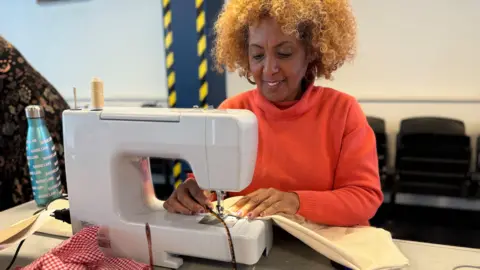 BBC
BBCOne-hundred-and-fifty London women have learned to sew, thanks to a social enterprise that is geared towards empowering and upskilling women on low household incomes.
Kundakala is currently offering 70 women in four London boroughs - Islington, Camden, Hackney and Lambeth - the opportunity to gain a qualification.
It was founded by Poornima Kirloskar-Saini as a way for women to develop tailoring and enterprise knowledge.
"I thought it would be great to give them some skills so that they could look at saving money, reducing debt, and possibly looking at an avenue of income generation," she explains.
"But what I also realised is that some women from some ethnic minority backgrounds have very fixed traditional roles in the household unit, and the women are the main caregivers, not just for children, but for older members of the family, and the men are the main providers.
"So I thought if I were to upskill them, it would be some kind of skill that they could do at home. So I thought of tailoring".
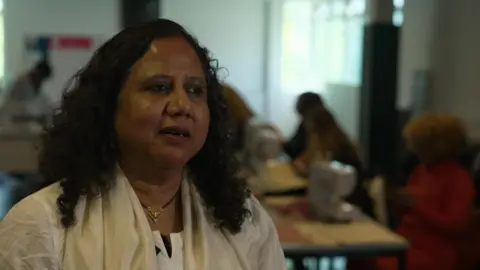
Her social enterprise runs several programmes, including a "make and mend" course, and a more advanced "alterations and upcycling" class.
"Our main thing was to help them save money and reduce debt. But along the way, we've also had a lot of positive mental health outcomes, social integration, lifelong friendships," says Poornima.
Of the 150 women to have been part of the programme so far, 15 have taken what they've learned and started their own microbusinesses.
Some make products which they can then sell in local markets, or they carry out alterations and repair services.
Others go into offices and workplaces to offer the alteration services, and get paid directly by customers.
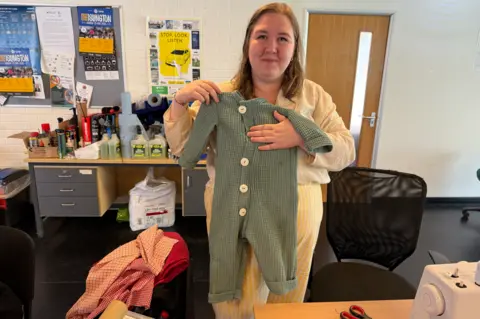
"We had the pandemic, then we had the cost of living, crisis, energy bills, so it just helps them feel a bit more comfortable with their financial situation," says Poornima.
As well as being a way to earn an income, the sewing skills have also helped the women reduce their spending, according to Poornima.
"Women from ethnic minority backgrounds normally like to wear ethnic clothes for festivals, and it's really expensive to get those clothes and to alter them, because invariably, if you get them off the shelf, you know the trousers may be too long for your child.
"So anecdotally, the women who've been through our programmes have told me that they've saved hundreds of pounds"
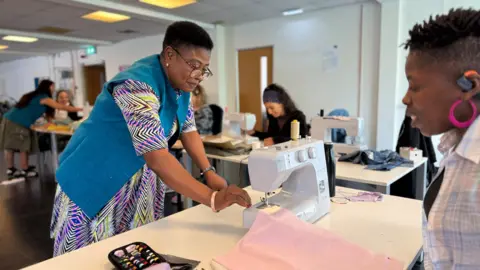
One of those to have been helped by Kundakala is Maggie Oparebea who started a sewing programme two years ago and believes it has really helped her.
"I can do make-up bags and I sell them. I can do repairs," she says.
"People call me [about making alterations] then I can charge them and I have money in my pocket."
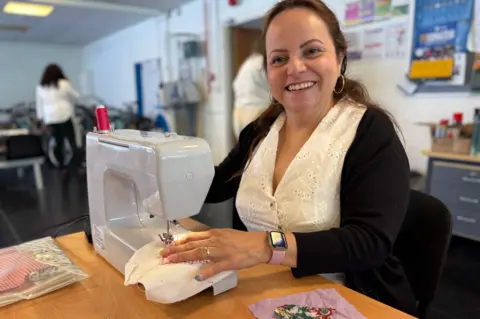
Poornima says that her social enterprise is all about putting women on a path of education and empowerment - something she calls her life's work.
"Just getting a skill improves their self-esteem, improves their confidence. Some of the ladies who participate in our programs have had no formal learning, and this sets them on the path to getting more skills, more confidence, and therefore more self-esteem.
"And then they become role models for their kids, their sons and their daughters."
Listen to the best of BBC Radio London on Sounds and follow BBC London on Facebook, X and Instagram. Send your story ideas to [email protected]
